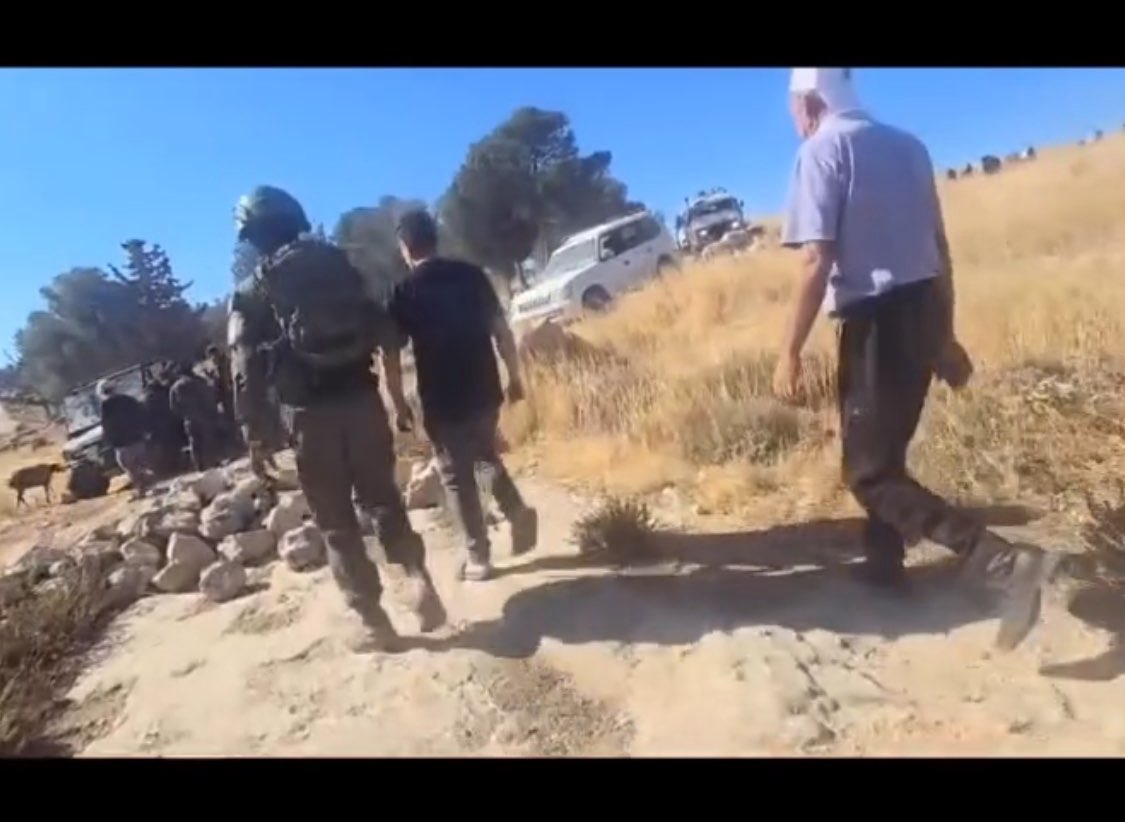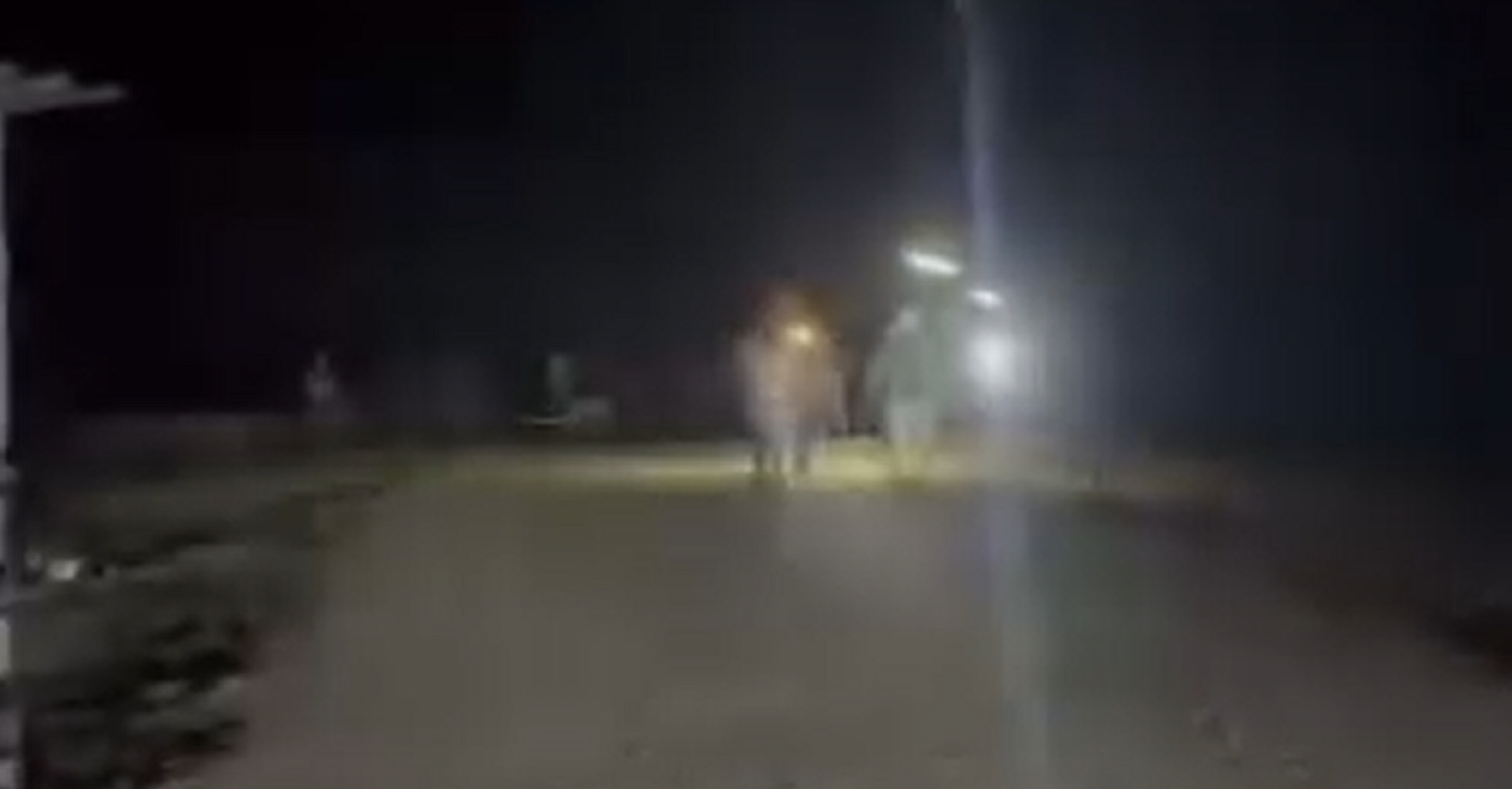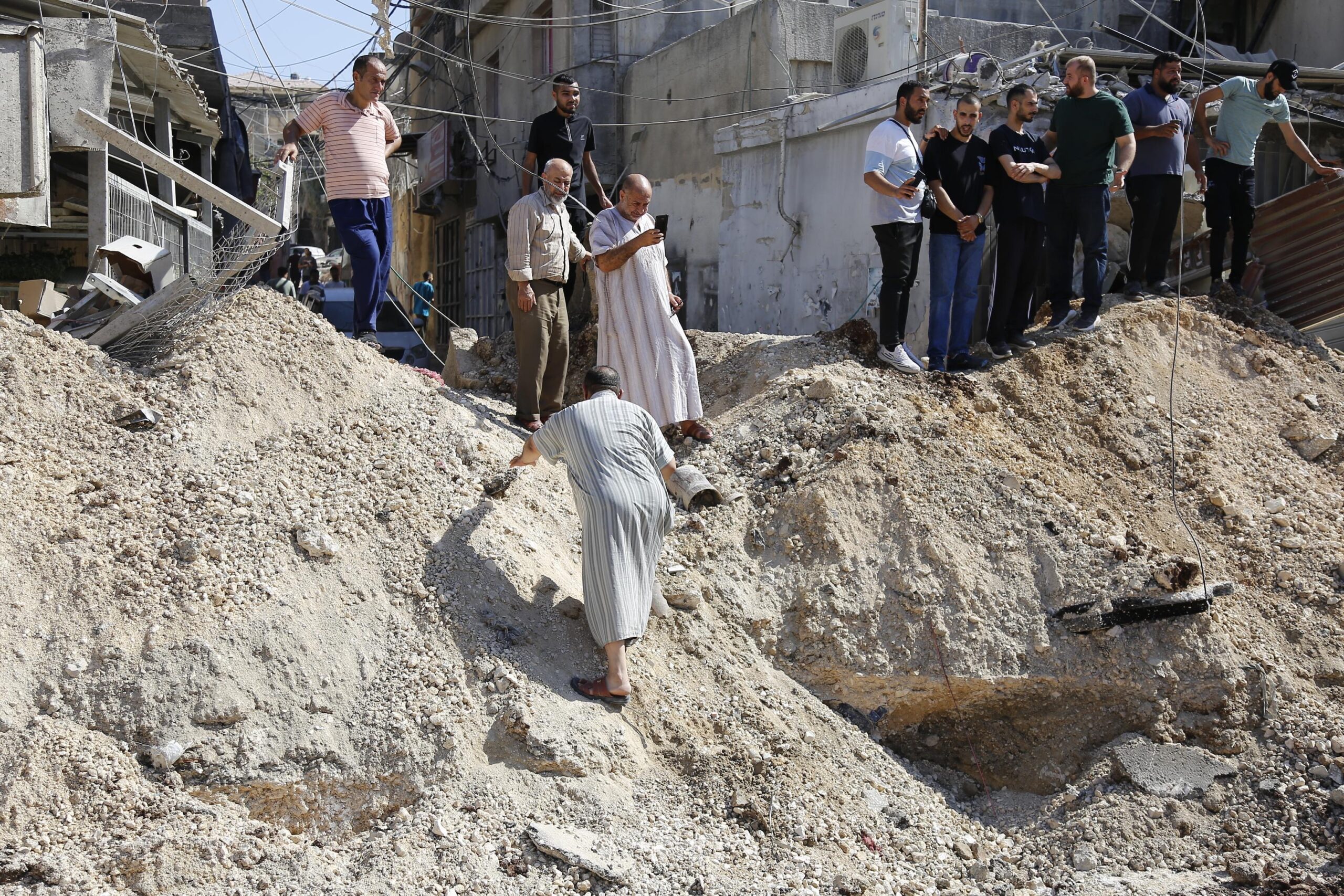Category: Press Releases
-
Huge Destruction Suffered by Nur Shams Refugee Camp
*Tulkarm – Nur Shams Refugee Camp* June 9, 2024 By Diana Khwaelid* At midnight on June 9, occupation forces stormed the city of Tulkarm and stationed themselves in the Nur Shams camp, northeast of Tulkarm. A military operation that lasted for more than 13 continuous hours ensued, during which the Israeli occupation forces vandalized and…
-

Palestinians and international human rights observers arrested in Masafer Yatta, occupied West Bank
July 7, 2024 FOR IMMEDIATE RELEASE Israeli Occupation forces arrested three Palestinians, including a 14 year old child, together with three international (including a US citizen) and one Israeli human rights observers in at-Tuwani, Masafer Yatta, in the South Hebron Hills area. This morning, armed Israeli settler shepherds invaded Palestinian land with their flocks, provoked…
-

Violence Erupts in Massafer Yatta: Illegal Settlers Attack Villagers and Destroy Property
FOR IMMEDIATE RELEASE Violence Erupts in Massafer Yatta: Illegal Settlers Attack Villagers and Destroy Property By Dottie Lux, International Solidary Movement Masafer Yatta, July 4, 2024 — A wave of violence swept through the village of Khalet Al Daba’a in Masafer Yatta as settlers launched a series of attacks on local palestinians, culminating in severe…

